Roger Touhy, Gangster
Cast & Crew
Robert Florey
Preston Foster
Victor Mclaglen
Lois Andrews
Kent Taylor
Anthony Quinn
Film Details
Technical Specs

Synopsis
In 1931, Captain Steven Warren, the chief investigator for the Chicago District Attorney's office, tries to arrest the henchmen of notorious gangster and bootlegger Roger Touhy for a series of crimes, but the frightened witnesses refuse to cooperate. Warren releases Touhy's cohorts--Herman "Owl" Banghart, Bernard "Troubles" O'Connor, Icebox Hamilton, Maxie Sharkey and Thomas J. "Smoke" Reardon--from custody but vows to pursue them. In Dec 1933, after Prohibition is repealed, Touhy decides to go "straight" because he is tired of pressure from Warren and the police. Needing money to buy a brewery, Touhy asks businessman Joseph P. Sutton to repay the $200,000 that he owes him. Although Sutton has the money, he claims that he does not, and his partner, Edward Latham, advises him to stall Touhy. Fed up with waiting, Touhy and his men kidnap Sutton and eventually collect $70,000 ransom from Latham. After Sutton is released, Warren pressures him to identify Touhy's gang as the kidnappers, and the reluctant businessman finally does so, although he does not reveal his prior connections to Touhy. While Touhy and his men are leaving the area, they are involved in a minor automobile accident that leads to their arrest. During their trial, Smoke testifies against Touhy and the others, who are found guilty and sent to serve ninety-nine-year sentences in the Stateville Peniteniary at Joliet, Illinois. Touhy is infuriated by Smoke's betrayal, and as the next eight years pass, continually tries to obtain a new trial. Smoke, who has been in hiding, is caught by some of Touhy's followers on the outside and framed for a crime he did not commit. Smoke is then sent to the penitentiary, and after being terrorized by Touhy, agrees to recant his testimony and help to free the gang. Smoke is killed by another prisoner before he can talk, however, and a desperate Touhy plans to escape from the prison. With the help of a prison guard, Touhy and his cellmate, George Carroll, escape along with Owl, Troubles, Icebox, Maxie and Rowden, another prisoner. Because the United States is now involved in the war, Touhy knows that the men will be arrested if they are caught without draft cards, and so orders Carroll and Rowden to rob unsuspecting citizens of their cards. The Federal Bureau of Investigation then takes over the case, as Touhy and his men have violated the Selective Service Act, first by not notifying the draft board of their "change of address," and then through their theft of the draft cards. Maxie's drunken carelessness causes Touhy to beat him viciously, and after Maxie and Icebox leave the gang, Icebox is arrested and informs the police of Touhy's whereabouts. Soon after, Rowden and Carroll are killed when F.B.I. agents attempt to apprehend them. Working with Warren, the F.B.I. then surrounds the apartment where Touhy, Troubles and Owl are living, and Owl convinces Touhy to surrender quietly, telling him that it is now time to pay for being on top for so long. Touhy and his men are then returned to Joliet.

Director

Robert Florey
Cast

Preston Foster

Victor Mclaglen
Lois Andrews
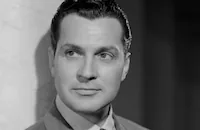
Kent Taylor

Anthony Quinn
William Post Jr.

Henry Morgan
Matt Briggs

Moroni Olsen
Reed Hadley
Trudy Marshall

John Archer
Frank Jenks
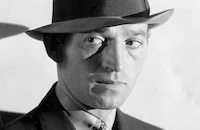
George E. Stone
Charles Lang
Kane Richmond
Warden Joseph E. Ragen
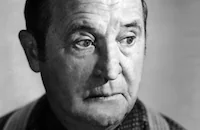
Frank Orth
George Holmes
Ralph Peters

Roy Roberts
John Harmon
Horace Macmahon
Edmund Macdonald
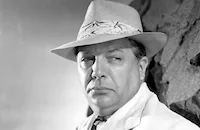
Cy Kendall
William Pawley
Murray Alper
Selmer Jackson

Joseph Crehan

Byron Foulger
George Lessey

Addison Richards
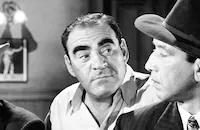
Ralph Dunn
Arthur Aylsworth
Dick Rich
William Ruhl
Herbert Ashley
Ivan Miller
Byron Shores
Bud Geary

Lee Phelps
Joey Ray
Ferris Taylor
William Haade
Thomas Jackson
Jim Farley
Warren Ashe
Stanley Blystone
Charles Wilson

Ralf Harolde
Jessie Arnold
Fred Chapman
Jay Black
Bill Halligan
Pat O'malley
Jack Gardner
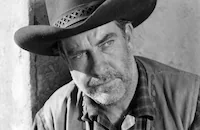
Grant Withers
Billy Wayne
Crew
James Basevi
Jasper Blystone
Jerry Cady
Lewis Creber
Bryan Foy
Bernard Freericks
Hugo W. Friedhofer
Robert Gray
Harry M. Leonard
Thomas Little
Joseph Macdonald
Glen Macwilliams
Lee Marcus
N'was Mckenzie
H. W. Mcknight
Emil Newman
Al Orenbach
Harry Reynolds
Fred Sersen
Crane Wilbur
Crane Wilbur

Film Details
Technical Specs

Quotes
Trivia
Notes
The working titles of this film were The Terrible Terrys; Prison Break; The Life of Touhy; Roger Touhy, Self-Made Man; The Escape of Roger Touhy and Roger Touhy, Last of the Gangsters. Actor Moroni Olsen's first name is misspelled "Maroni" in the opening credits. The following written statements appear after the opening credits: "The portrayal of Federal Bureau of Investigation characters in this picture is not to be construed in any manner whatsoever as an endorsement or approval by the Federal Bureau of Investigation. We wish to acknowledge our appreciation to Governor Dwight H. Green of Illinois, P. T. Sullivan, Director of the Department of Safety, and Warden Joseph E. Ragen, who generously granted us permission to photograph all prison scenes at Stateville Prison, Joliet, Illinois. All characters appearing in this film are fictitious with the exception of the members of the Touhy gang and those other persons whose true names are used herein."
At the film's end, Warden Ragen appears onscreen and gives the following speech: "They say crime doesn't pay. I disagree-crime does pay. It pays off in disgrace to yourself and family-and for those who continue to disregard law and order even while in prison, this is the only answer-solitary confinement. I wish that every man, woman and child in America could see for themselves just how a person who has lived outside the law-lives behind prison bars. I would much rather see you here as a visitor than as a permanent guest of the State of Illinois."
The picture is loosely based on the life of Roger Touhy (1898-1959), a successful bootlegger who operated in the suburbs of Chicago. According to modern sources, contrary to the film's depiction of Touhy as a murderous, hardened criminal, the real Touhy was a businessman more interested in the quality of his illegally brewed beer than in ruling a gang. Some modern sources note that Touhy used guns borrowed from local police officers and off-duty officers to drive his beer trucks and intimidate emmissaries of Al Capone, who was interested in taking over Touhy's well-run operation. Despite his lack of a real "gang," Touhy succeeded in staying beyond Capone's reach, and in 1933, was acquitted in a case in which he was accused of kidnapping brewer William A. Hamm, Jr. Later that year, however, Touhy was again brought to trial and convicted of the kidnapping of John "Jake the Barber" Factor. According to modern sources, the kidnapping of Factor, himself a criminal, was engineered by Capone and Touhy was framed for the crime to get him out of Capone's way.
When Touhy's attempts to obtain a retrial were unsuccessful, he accompanied gangster and former schoolteacher Basil "The Owl" Banghart and several others when they broke out of the Stateville Federal Penitentiary on October 9, 1942. Touhy was recaptured on December 29, 1942, and in the early 1950s, his conviction was overturned due to perjured testimony. He was finally released in 1959. Less than a month after his release, Touhy was gunned down and killed by an unknown assailant, presumably a member of Capone's old gang.
According to a October 13, 1942 Hollywood Reporter news item, executive producer Bryan Foy first decided to make a film about Touhy after reading a newspaper account about his escape from prison. A March 17, 1943 Hollywood Reporter news item announced that Lloyd Nolan, who had originally been cast as "Roger Touhy," was permitted to withdraw from the role after taking "a stand against portraying any more screen gunmen." According to a April 2, 1943 studio press release, Kent Taylor was then signed to play "Touhy," with Preston Foster playing a "gallant G-man." In a September 1943 article, New York Times reported that Taylor's and Foster's parts were subsequently reversed.
According to a May 24, 1943 studio publicity statement, Anthony Quinn was originally assigned to play informer "Smoke Reardon." He was instead cast as "George Carroll" when "it was called to Producer [Lee] Marcus' attention that Quinn is one of the very few Latin-American actors of any prominence in Hollywood and it would not be conducive to inter-American amity to have him as such a despicable character." Hollywood Reporter production charts and news items include Ralph Byrd and William Marshall in the cast, but their appearance in the completed film has not been confirmed. Although Joseph MacDonald is credited by Hollywood Reporter production charts as the film's photographer, Glen MacWilliams is listed as the director of photography in the onscreen credits. A modern source notes that director Robert Florey interviewed the real Touhy and his men at the penitentiary.
After completion of principal photography, the film encountered many obstacles, including protests from the Federal Bureau of Investigation following a preview of the film held at Stateville in July 1942. Claiming that the studio had credited local law enforcement officials with actions taken by the FBI, the agency demanded that Twentieth Century-Fox reshoot part of the film. Retakes and additional scenes were shot in September 1943 and March 1944. According to information in NARS at Washington, D.C., The Office of Censorship disapproved the picture for export to other countries. Correspondence indicates that the film was first viewed by a member of the board on June 17, 1943 at a length of 6,582 feet. The studio then "did some editing and added a brief 'crime-does-not-pay' ending, and the final version, measuring 5,873 feet, was viewed on March 24, 1944 and disapproved shortly afterward. According to a December 4, 1947 New York Times article, the MPAA declared the picture "unsuitable for re-release or re-issue," as part of its ban on gangster films.
In 1943, Touhy himself attempted to keep the picture from being distributed. Claiming that the film was "injurious to his pride and family position," Touhy won a temporary restraining order against exhibition of the picture in early August 1943, but his permanent injunction against the film's release was denied. After the film's retakes and additional scenes were filmed, it was finally released in July 1944. On August 15, 1944, Touhy filed a million-dollar libel suit against Twentieth Century-Fox and exhibitors showing the picture in the Chicago area. On November 1, 1949, according to Hollywood Citizen-News, the studio settled with Touhy for $15,000 and the case was dismissed. Although a May 1960 Daily Variety news item announced that Esquire Productions, an independent Chicago-based production company, would be making a film about Touhy, the picture was not produced.

Miscellaneous Notes
Released in United States Summer July 1944
Released in United States Summer July 1944











